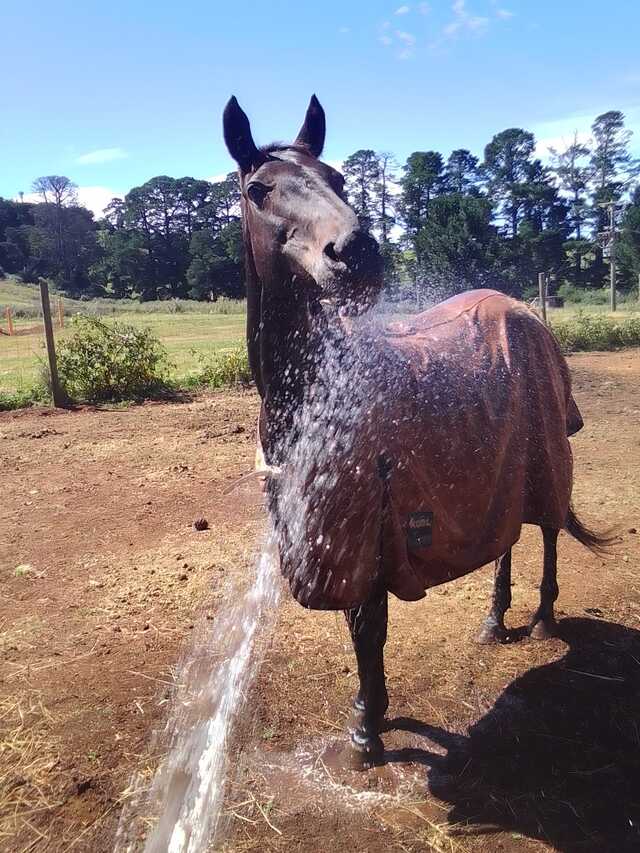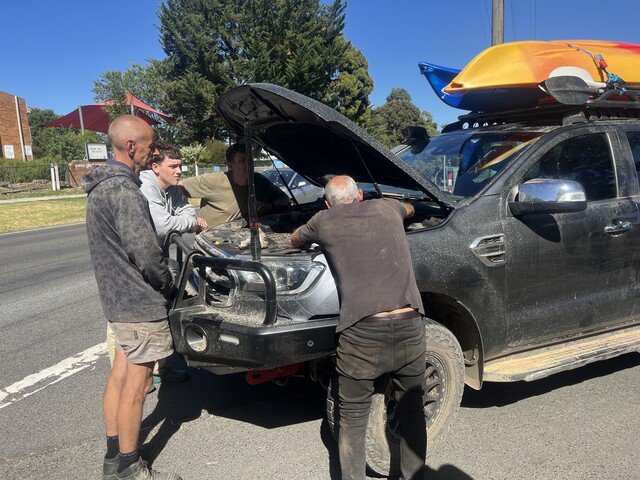By Kath Gannaway
HEALESVILLE woman Debbie Cheeseman has renewed a campaign to have fire brigade sirens sounded as a bushfire alert.
Mrs Cheeseman has advocated for sirens to be used to alert residents of approaching bushfires since the summer of 2006 when a thunderstorm started a fire in bush near her horse property near Chum Creek.
The fire started at around 2am and Ms Cheeseman said she was awoken only by the thunder to discover the fire approaching.
The Black Saturday fires, she says, have confirmed her belief that some sort of warning is needed to alert residents to approaching bushfires.
She has instigated a petition calling on the government and the CFA to act before the next bushfire season.
“In the event of a bushfire time is of the essence for local home and property owners to execute their fire plan.
“To not have any warning of an approaching fire is putting many lives at risk.”
Mrs Cheeseman said she was at work on Black Saturday when she received a call from home to return as the fire swept towards her property near Chum Creek.
As she and her partner worked to get their horses, and her daughters, off the property, she said they could see the fire racing across the nearby ridge.
“Seeing the fire racing over the hill was the only warning we got,” she said.
She said prior to going to work she and her partner had been turned to ABC radio and were monitoring the CFA website all day. He continued to do that, but there was no indication of the fire in Chum Creek.
“What if those fires had come through at 2am in the morning. With no warning many more lives would have been lost,” she said.
Mrs Cheeseman said she had been inundated with calls supporting her stand, including many from current and former CFA members who say they cannot speak out against the CFA’s ‘no siren’ policy but have encouraged her to keep up the campaign.
The CFA however says brigade sirens were never intended, or used, as a warning device.
Graeme Armstrong, CFA operations manager for Region 13 (including the Yarra Valley) told the Mail the sirens were a means of alerting firefighters to respond to an incident – fire, car crash or other incidents which needed a response.
Technology has overtaken the siren and members are now alerted through a state-wide pager system carried by every member.
“A number of brigades have elected to retain their sirens for various reasons but they are not activated.”
Mr Armstrong said the question people needed to ask is what were they going to do if they heard a fire siren.
“If it’s about activating your bushfire plan, that’s something that needs to be done before a bushfire event,” he said.
“A siren is something that wakes you up but it doesn’t tell you what to do, or what the fire is doing, and it may encourage inappropriate action. If a fire is that close where people can see it, to respond with a late evacuation is not what we advise,” he said.
Mrs Cheeseman argues however that in the case of both Marysville and Chum Creek, the fire was upon the residents and that they were being told to get out.
“What I am arguing for is for some sort of siren to be used in events of extreme emergency when the fire is close to the town to give some sort of warning.
“I understand that there are some areas where, perhaps depending on the wind, people won’t hear a siren, but some warning is better than none at all, and that’s what we got,” Ms Cheeseman said.
Call for sirens
Digital Editions
-

Guidelines for extreme heat
Agriculture Victoria have made the following suggestions for this week’s hot weather forecast: Managing animals in high temperatures requires good forward planning. Keeping an eye…















